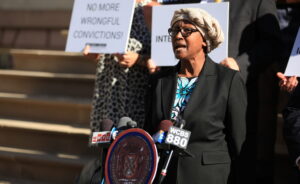
Defining free speech in the new age of Twitter
There’s a strange musk drifting through the halls of Twitter HQ. It’s a thick odor of lithium-ion smoke, rocket fuel, and Hyaluronic Acid Injections. But to offset this brew of inorganic vapors is the salty stench of C-Suite tears sliding from the ducts of a handful of ex-Twitter executives.
At last, Elon Musk tore open the birdcage and unstrapped the muzzle from Larry’s little blue beak. (Correct, Larry is the actual name of the Twitter bird.) All reports of Musk’s heroics are according to the man himself who, in a months-long solo act, trumpeted his way to a 44-billion-dollar Twitter acquisition — what he calls an enormous stride towards securing free speech.
Woo-hoo. A true win for the herd of independent minds who believe the internet’s main problem is that it requires more free-rangeness.
Personally, I admire free speech while also finding that the Musk-style advocacy for the first amendment is a bit overcrowded. I’d be much more interested in seeing people organize around their God-given right to shut the hell up every now and again. Now there’s a group whose buttons I would proudly pin to my fanny pack.
Musk’s Vision for the Future of Twitter
In a Tweet of his own, Musk took great care to explain his nobility to those who haven’t yet grasped his purchase’s salvific nature:
“The reason I acquired Twitter is that it is important to the future of civilization to have a common digital town square where a wide range of beliefs can be debated in a healthy manner, without resorting to violence. There is currently great danger that social media will splinter into far right wing and far left wing echo chambers that generate more hate and divide our society.”
Ok, good. Of course, the future of human civilization hinges on its ability to microblog and foam at the mouth over opposing microblogs. And, of course, debate and town-square behavior are much better dealt with on the internet than in our local communities.
And, I mean, of course, Musk has a great plan to transform Twitter into a virtual and inclusive Algonquin Round Table. Unfortunately, he’s just keeping the plan hidden while he yaps about bots and reinstates Ye’s ability to publish threats toward Jewish people.
The Power of the Headline
Paraphrasing Kierkegaard, Musk is the type who demands a greater portion of free speech than is owed to him when comparing the frequency with which he exercises his freedom to think and to listen. But, Musk is a monarch of the internet age. He understands that thought threatens the size of one’s image. Along with this, he understands that having a face that ranks on page one of Google’s SEO algorithm and a name in large font lends him more power than money can buy or thought can win over.
Musk, for all his dead spots, masters inflating his name and brands. In many respects, he’s the closest creature the 21st century has to William Randolf Hearst. So, at the very least, he’s doing his job to maintain the sacred American tradition of billionaires capitalizing on jingoism to hatch media empires, casually degrading the concept of free speech in the process.
Sources:
- Musk Fires Twitter Executives on Day One
- History of the Twitter Bird Logo
- Kanye West Tweets Antisemitic Threats





